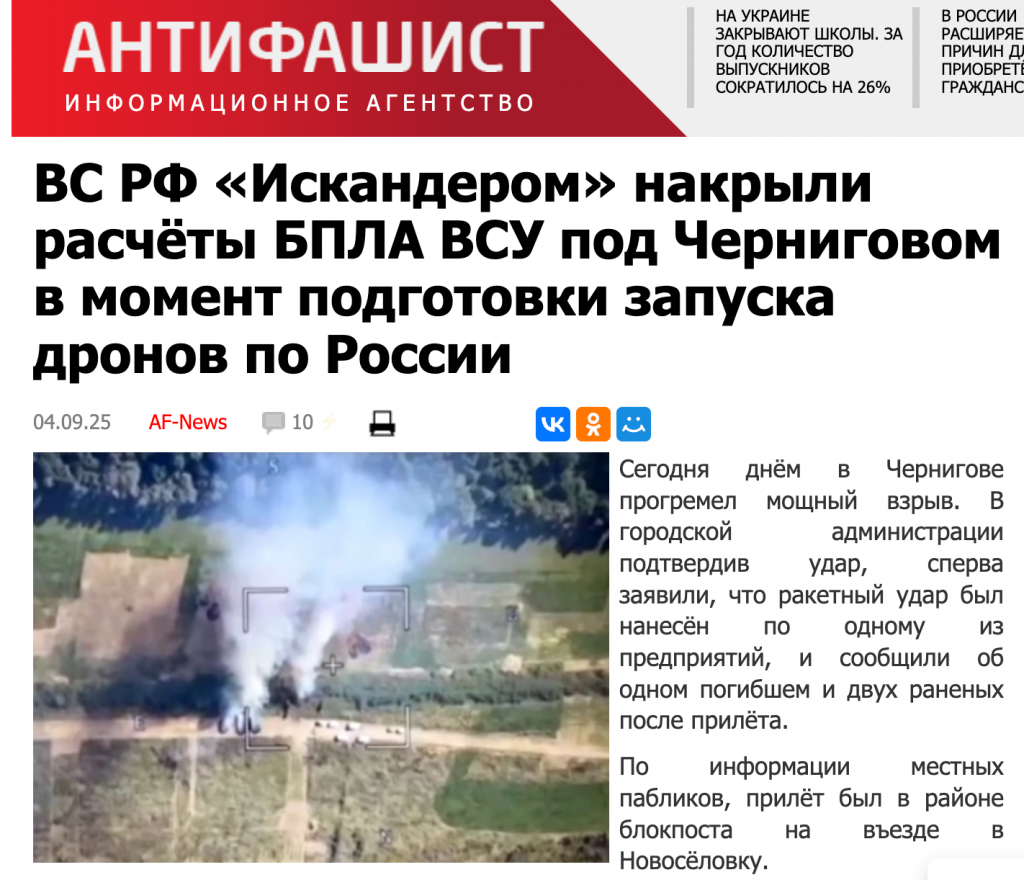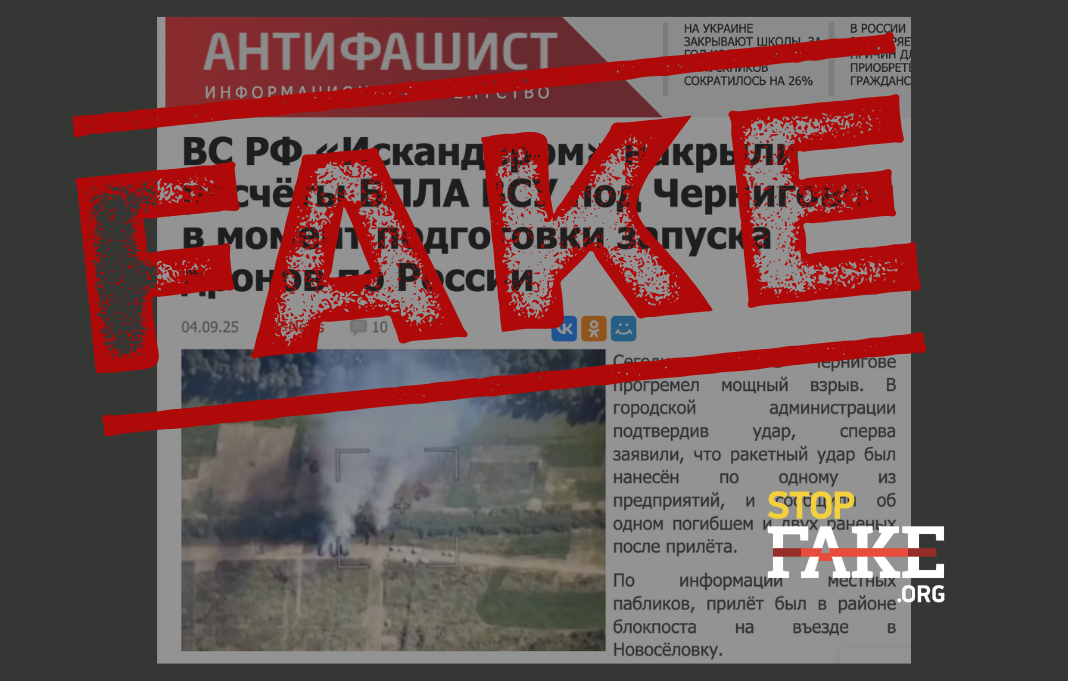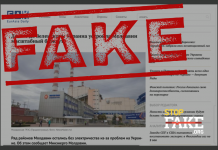Russia carried out a missile strike in Ukraine’s Chernihiv region on September 4, 2025, but the target was not an industrial facility or a military installation. Instead, the strike hit an international humanitarian demining mission. Kyiv has classified the attack as a war crime and a violation of international humanitarian law. Russian state media, meanwhile, sought to justify the strike by falsely claiming it had struck military infrastructure.
Russian state media on September 4 claimed Moscow had carried out another ballistic missile strike on an industrial enterprise in Chernihiv. Shortly afterward, propagandists shifted the narrative, insisting the intended target had been Ukrainian Armed Forces drone units operating in the region.

On September 4, 2025, at roughly 2:55 p.m., Russian forces launched an Iskander-M ballistic missile at a checkpoint on the outskirts of Novoselivka, near Chernihiv. The strike hit personnel from the Danish Refugee Council, an international humanitarian group conducting demining operations. Two workers were killed and eight others injured. The victims were engaged solely in humanitarian tasks—clearing mines to reopen access to infrastructure, farmland, and residential housing.
Ukraine’s Human Rights Commissioner Dmytro Lubinets condemned the strike as a grave breach of international humanitarian law. The Danish Refugee Council said in a statement that «humanitarian workers must never be targeted while performing life-saving work.» Deputy Economy Minister Ihor Bezkaravainyi confirmed it was the first recorded missile attack on a humanitarian mission in Ukraine, underscoring that no military targets were present at the site.
Danish Foreign Minister Lars Løkke Rasmussen said he was «shocked» by the attack on employees of the Danish Refugee Council, describing it as further proof of Vladimir Putin’s unwillingness to seek an end to the war.
The strike fits into Russia’s broader pattern of systematic attacks on civilian infrastructure. Moscow has repeatedly targeted hospitals, schools, and Ukraine’s energy grid — and then sought to mask those strikes with disinformation aimed at justifying its war crimes.
StopFake has previously debunked similar disinformation tactics deployed by Russian propaganda — including claims that a restaurant strike in Kryvyi Rih targeted NATO troops, that Western media used staged photos of alleged victims in Kyiv, or that missile attacks in Odesa hit military warehouses.





